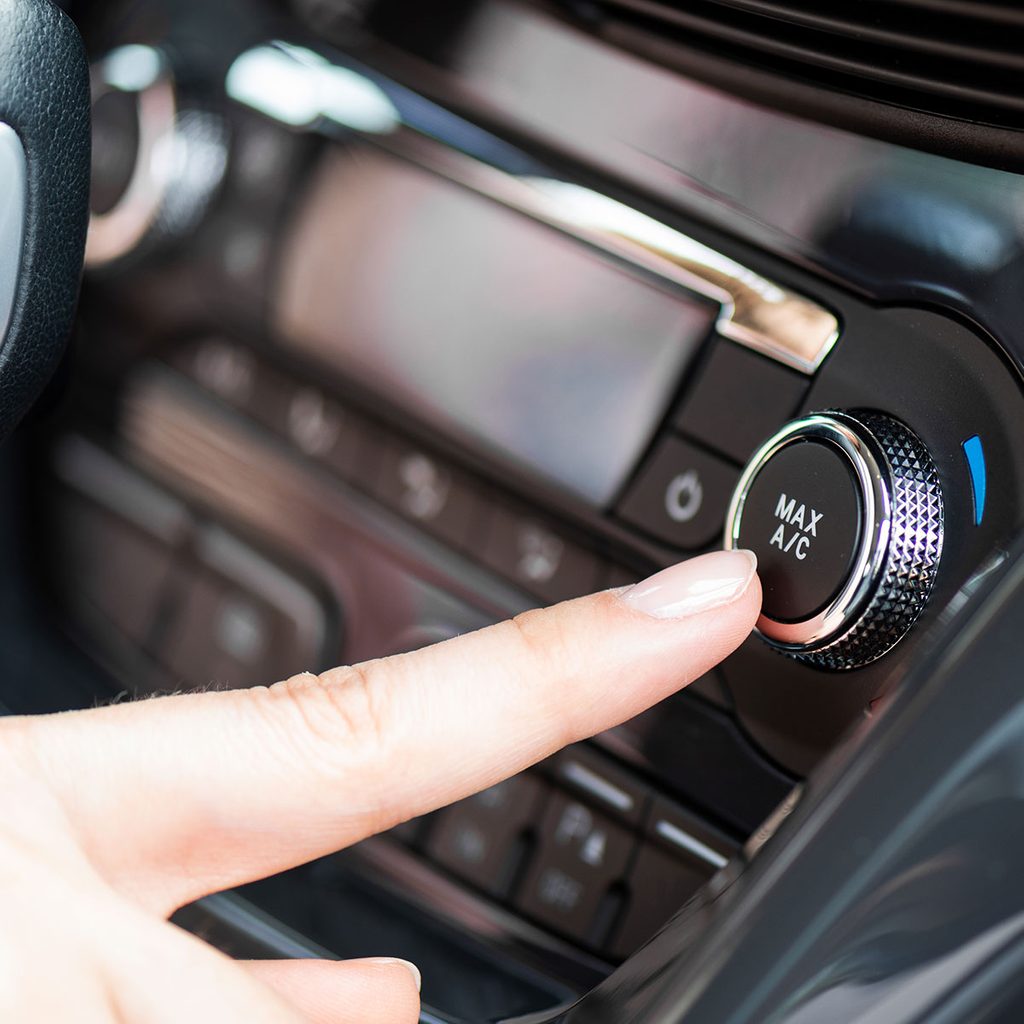Why Does My Car AC Smell?
Updated: Mar. 13, 2024

A foul odor coming from the dash vents when your air conditioner is on means there's a problem. Let's figure out what's wrong and how to fix it.
You’re stuck in traffic on a hot day and the air pouring from the dashboard vents stinks. Not good. Sitting inside a car that smells bad is no better than sitting in a hot, sticky car. Unfortunately, nasty odors from the air conditioner (AC) system are a common problem.
Many things can cause air from the vents to have an unpleasant (and unhealthy) odor. Here are the most common causes.
On This Page
How Car AC Works
An automobile air conditioning system cools the air inside your vehicle through a simple four-phase cycle. Refrigerant flows through several components, changes from high to low pressure, and from a liquid to a gas. As a low-pressure gas, refrigerant absorbs and expels heat and moisture from the passenger compartment, cooling the air. The moisture it removes is the water you generally see dripping under your car when the AC is running and operating normally. While you’re at it, learn how to recharge your AC yourself.
Types of Car AC Smells
Stuffy, stale air
Sort of like an old gym bag, this smell results from dust and bacteria build-up in the AC ductwork caused by a dirty cabin filter. This is the leading cause of bad AC smells. Replacing the cabin air filter is a quick, inexpensive fix any DIYer can do. Check your owner’s manual for detailed instructions.
Musty, moldy or mildewy
These smells are usually due to dirt, dust and debris buildup in the under-hood air intake vent, trapping water and moisture on the AC evaporator and in the evaporator case. All kinds of nasty gunk (germs, mold, mildew) can fester and grow in that wet, trapped debris.
Although you can flush the AC evaporator case through the vehicle’s air intake with a household disinfectant and clean the ducts with an anti-bacterial spray, this is best left to the pros. They use commercial-grade bacteriostats and microbials to kill and eliminate spores and other contaminants that cause foul smells from an AC system.
If you do not see clear water leaking from under the middle of your car when the AC is running, it means the AC evaporator case drain hole is clogged with leaves, pine needles, debris or sludge. Check your owner’s manual to pinpoint the drain location. Some vehicles have a small rubber hose located at the bottom of the firewall near the middle of the car.
To clear it, take a 12-inch piece of a wire coat hanger with a 1/4-inch 90-degree bend at the end and carefully insert just the bent end of the wire into the hose. Twist the wire back and forth and pull out any gunk clogging the drain. If the drain hole is under your car, let your mechanic clean it out. Thoroughly disinfect the AC case after clearing the clog.
A clogged AC drain can also cause water to leak into the passenger compartment, soaking the carpets and producing the perfect environment for mold to grow and thrive.
Chemical odor
A chemical odor, frequently accompanied by a moldy smell, usually indicates the AC evaporator itself is leaking refrigerant. If you can hear the blower fan running but there is barely any air coming from the vents, oil from the leaky refrigerant has trapped dust and dirt on the evaporator fins, restricting air flow from the vents.
Because the evaporator is usually tucked up under the instrument panel, this repair should be done by your mechanic.
Sweet pungent odor
A maple syrupy smell, and perhaps a slimy film on the windows, indicates a leaking heater core is seeping engine coolant into the AC ducts. Installing a new heater core can be difficult and should be left to the pros.
Other car ac smell causes
Fumes from engine oil, or coolant burning under the hood, can get sucked into the AC fresh air intake, giving off bad smells when your AC is first turned on. Check under the hood for oil stains or leaks, then talk with your mechanic about possible causes and needed repairs. Get to know how does AC uses gas to run.
The Last Word on Car AC Smells
Never use caustic drain cleaners to flush your AC case. You’ll ruin expensive and difficult-to-replace AC components. Avoid running your AC only in “recirculate” mode. Recirculate mode prevents fresh outside air from entering the AC ducts. Fresh air can help dry out excess moisture.
As part of your basic maintenance plan, with the engine off and key “on,” run the AC blower fan for a minute or two to help dry out any moisture remaining in the AC case. Also, check with your dealer’s service department. Some manufacturers offer an “after-run” kit that allows the AC blower motor to run a minute or two after turning off the car.
